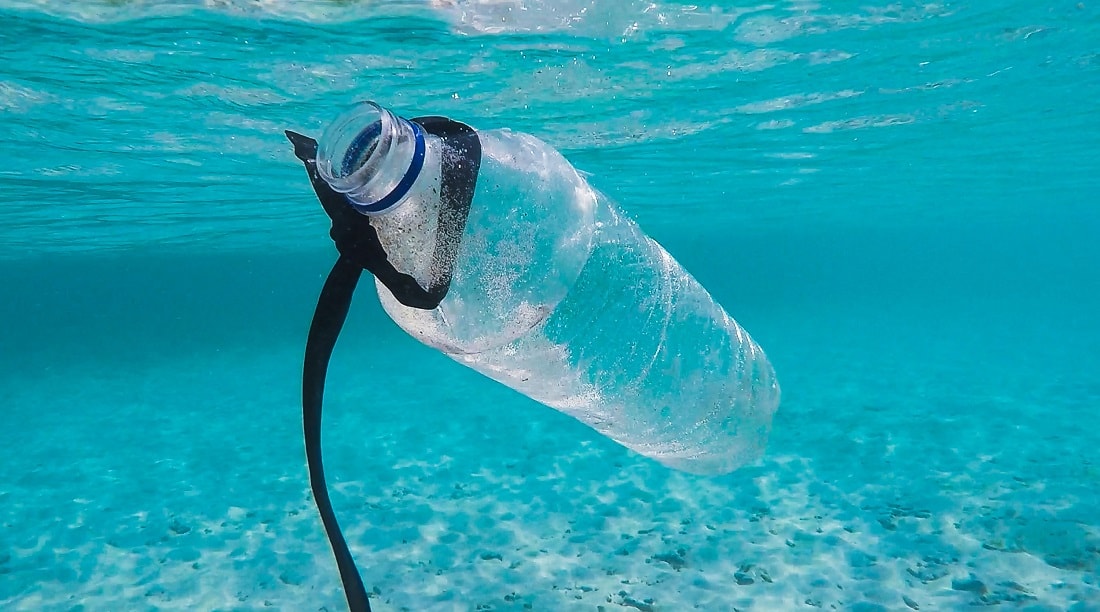Plastic Waste Management – The Need for the environment
Plastics – an integral part of everyone’s life is now unavoidable and inevitable.
India generates more than 15 million tonnes of plastic waste every year. However, only one-fourth of the plastic waste is reutilized again for use, and the remaining plastic waste is left without concern.
Plastic waste is a massive resource when reprocessed and will cause vigorous disaster if left unethically. Recently, Plastics have collided with our routine activities in the form of packaging, cosmetics, smartphones, water bottles, pharmaceuticals and other manufacturing sectors.
There’s no way to eliminate plastics from the earth, but with prior monitoring and treatment, plastic can emerge as one of the greatest resources for mankind. Unfortunately, all plastics cannot be treated and reused again, but many have the tendency to reutilize and reincorporate into the life cycle again.
How to tackle plastic waste scattering?
Plastic waste is scattered everywhere. The majority of solid waste is plastics. Plastics are in large numbers when it comes to consumption. Speculating plastic waste needs a socio-economic framework with structured material recovery facilities for efficient operation.
11% of Household and residential wastes collected are plastics.
Plastic waste needs to be initially segregated from the source, i.e., from our household waste. Recovering household waste properly will eliminate the uncontrollable scattering of plastic waste worldwide.
In India, the plastic waste recycling process is still unorganized and not systematized for effective recycling management. Therefore, plastic manufacturers, consumers, industrial sectors using plastic as raw material, and government ULBs need to implement an action plan to eliminate the plastic waste contingency.
Why Exterminate Earth for just 12 minutes?
“More than 2 million plastic bags are consumed every minute, but its consumption time is less than 12 minutes.”
Plastic products are widely made for One-time Utilization (Single-use plastics). Single-use plastics are more harmful than ordinary plastics. One-time usable plastics cause immediate littering. One-time plastic causes a lifetime plastic predicament causing land & marine debris and food chain supply.
“66% of the thrown away plastics are Single-usable Plastics.”
Millions and millions of plastic wastes are choking the land and water bodies. Every single atom-sized plastic is still somewhere, causing both environmental and human health.
“40% of plastic materials are manufactured for packaging purposes.”
Packaging is the primary need for plastic production; once the package is delivered, the plastics are thrown away within a second. The mobility of plastic packaging includes major industries like food, cosmetics, Ecommerce, and Automobile sectors. Due to the high consumables delivered and packaged, these plastics are dumped everywhere, causing a huge environmental waste burden.
Plastic Waste management rules and regulations
Plastic waste treatment is still below average in India. As still littering waste on oceans, polluting landfills is exponentially increasing. With no concern, plastic waste becomes more than the consumption rate.
“Recycling 14 Plastic bags generates essential gas to drive a vehicle for One mile.”
Waste management in India is crucial because population growth expands rapidly, consumption and product outcomes are greater than ever. To Prolong this situation, the Plastic waste management rules 2016 is implemented rigorously to follow the norms and regulations provided.
In the past few years, the Government of India legislated and enacted several norms and regulations for the state, district and local bodies to manage the plastic waste effectively. Specifically, single-use plastic products need to meet the right recycling station without causing pollution to the environment.
Plastic waste management rules (2016) in India aim to,
- Improve the thickness of the plastic from 40 to 50 microns.
- Increased the collection and segregation as equal as Urban areas, since the plastic has started demolishing the rural sector too.
- The Municipal corporation is planning to initiate the plastic waste collection charge from producers, Importers, brands and owners dealing with bulk quantities of plastics.
- Introducing the plastic waste take-back system to create awareness among the people.
- Waste generators and commercial brands transacting with waste need to segregate the plastic waste at the source for better recycling.
- People conducting public events, meet ups and gathering events must take the utmost responsibility for plastic waste littering before and after the event.
- From Now on, SPCB (State pollution control board) will not permit or admit new enrollment of plastic or multi-layered plastic packaging unless the brand owners or producers register themselves with Extended producers’ responsibility to maintain the post-consumer products after use.
- Shop owners or merchandise selling plastic products or bags need to pre-register with corporations to pay a certain surcharge for the local bodies for plastic waste prevention collection and disposal.
Ocean Plastic pollution – Like never before
Oceans – The Unexplored part of the world faces more plastic pollution than the land surface. More than 1000 species of marine organisms have become extinct, and 500 highly dangerous dead marine zones have been recorded, which are fully covered with plastic particles. The ocean is the place where microplastic particles dump on a large scale.

The largest colossal plastic trash spot is the “Great Pacific Garbage Patch” (the hovering island of plastic debris), covering enough plastics with the space double the surface area of Texas.
More than 54% of the plastic thrown away in the oceans is single-use plastic.
To reduce the plastic disposal in the oceans, the Government of India (GOI) came up with various legislative laws to control the ocean debris as already, microplastic intervention came up into the human food chain causing a huge dilemma in the food chain system.
The Maritime zones of India act 1976 were enacted to prevent the pollution caused to the oceans.
Plastics need to be eradicated from the oceans with efficacious measures to maintain the ecological balance of the living standard.
Developing a clear, systematic and coherent plastic prevention policy at national, state and local levels will pave the way to resolve plastic pollution from its root cause.
Plastic waste – Breakdown
Plastic waste is the world’s most ubiquitous pollutant and the fastest-growing environmental threat.
Plastic prevention needs a well-organized paradigm for managing plastic waste and rethinking how to dispose of plastics. To achieve this, it’s essential to develop a comprehensive strategy that emphasizes three principles:
- Reducing the use of plastic
- Recycling more than ever
- Designating a specific need for recycling technologies.
Plastic waste management needs a compelling solution before plastics cover the world.
Our plastic waste management and prevention programs should aim at reducing the use of plastic, recycling plastic waste through closed-loop systems, creating a demand for recycled plastics and creating new products out of existing plastic materials.
